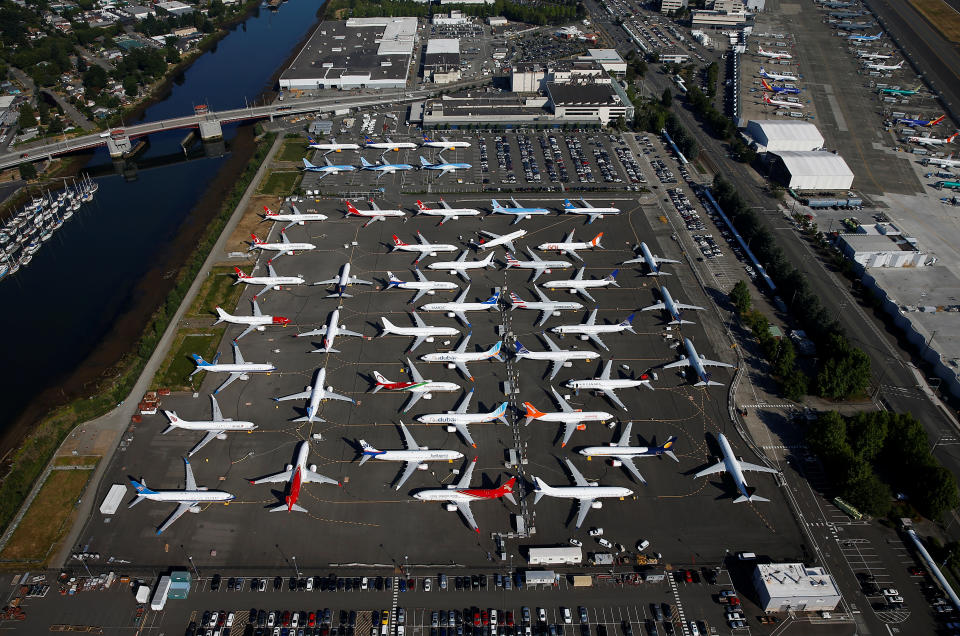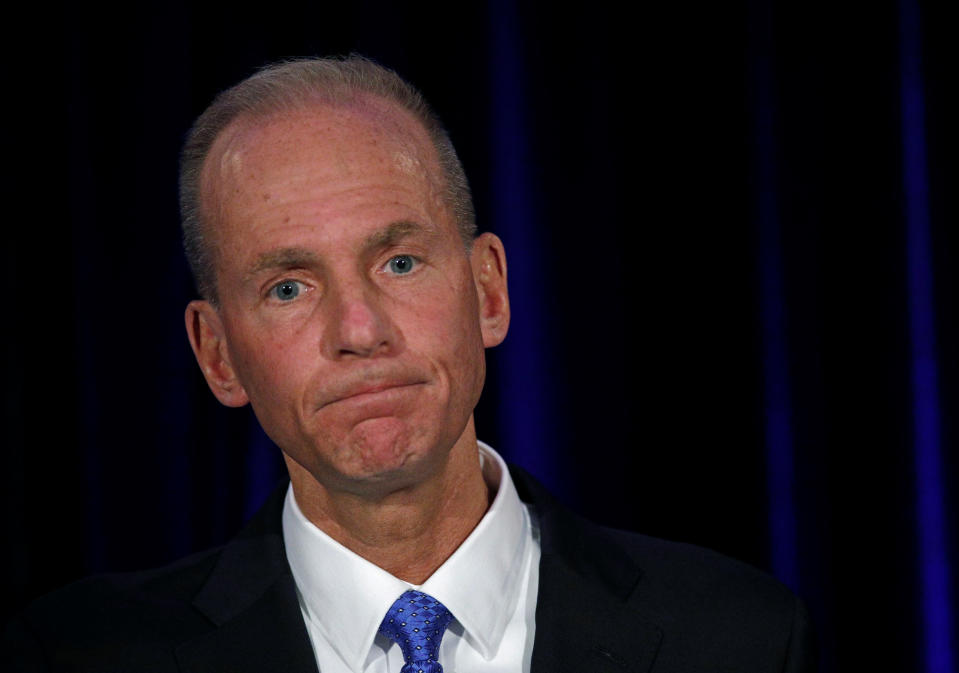Boeing CEO: 'We have to prepare for' a temporary shutdown of the 737 Max

After Boeing (BA) missed second-quarter earnings expectations by wide margin Wednesday, CEO Dennis Muilenburg stood by expectations that the troubled 737 Max would return to service early in the fourth quarter.
Still, he cautioned that significant changes to the anticipated timetable could fuel a slowdown or temporary shutdown of the production of the Max line, which was involved in two deadly crashes.
“If any of the timeline assumptions change significantly from a start-of-the-fourth-quarter return to service, then we'll have to evaluate alternatives,” Muilenburg said. “And those alternatives could include different production rates, they could include a temporary shutdown of the line — not something we want to do, but an alternative that we have to prepare for, I think, is a smart part of our thorough and disciplined process here to make sure we're covering all scenarios.”
The scenario of adjusted production rates represents a swing from Boeing’s assumption-based projections in a press release published Thursday stating that in 2020 it anticipates gradually increasing monthly Max production levels from 42 to 57.
“As long as we remain solid on that assumption, we believe we can maintain our current 42 per month production rate. And as we said, incrementally step back up to 57 a month, as we go into 2020,” Muilenburg said.

The company maintained its plans to submit a final certification package for the Max to the FAA in September and a return to service as early as October. The guidance came with the caveat that the FAA and global aviation regulators, and not Boeing, will ultimately determine when the 737 Max returns to service.
Boeing said it is confident that a recently identified additional fix to a Max microprocessor, required by the FAA, can be remedied by a software update, rather than a hardware update. The company also said its estimates have taken into consideration requirements submitted by regulators around the globe.
A spokesperson for Boeing told Yahoo Finance that each Max aircraft will take about three hours to update, with respect to fixes that the company currently knows will be required by the FAA.
When asked whether Boeing’s projections for return to service as early as October were optimistic given the FAA’s test flight data analysis process, Boeing said it was assessing the timeline on a daily basis.
“Post certification flight, it's typically a process that’s measured in a number of weeks for the regulators, including the FAA to evaluate all of that data and to confirm it, and to give us approval to underground the fleet and return to service,” Muilenburg said. “We have taken our best estimate at that and factor that into the analysis and numbers that we shared with you today.”
Max planes were grounded by the FAA on March 13 following the second of two similar crashes that killed all passengers and crew on board. Shortly after takeoff from Jakarta, Indonesia, on October 29, Lion Air Flight 610 crashed into the Java Sea. Ethiopian Airlines Flight 302 crashed shortly after takeoff from Addis Ababa, Ethiopia, on March 10.
Both flights involved a controversial flight system, Maneuvering Characteristics Augmentation System (MCAS), suspected of reacting to errant sensor data. Boeing is currently working to address MCAS, as well as the later-identified microprocessor issue, in order to resubmit the Max for flight certification.
Last week, Boeing announced $7.3 billion in costs that would impact its bottom line for the second quarter. The company reported $5.6 billion in reduced revenue and pre-tax earnings due to concessions it anticipates extending to airline customers, as well as $1.7 billion in reduced margins based on increased cost to produce the Max.
In its second-quarter results, Boeing reported $15.8 billion in revenue and an adjusted loss per share of $5.82. Wall Street estimates had projected $20.45 billion in expected revenue and $1.96 in expected earnings per share.
Alexis Keenan is a New York-based reporter for Yahoo Finance and former litigation attorney.
Follow Alexis Keenan on Twitter @alexiskweed.

 Yahoo Lifestyle
Yahoo Lifestyle 